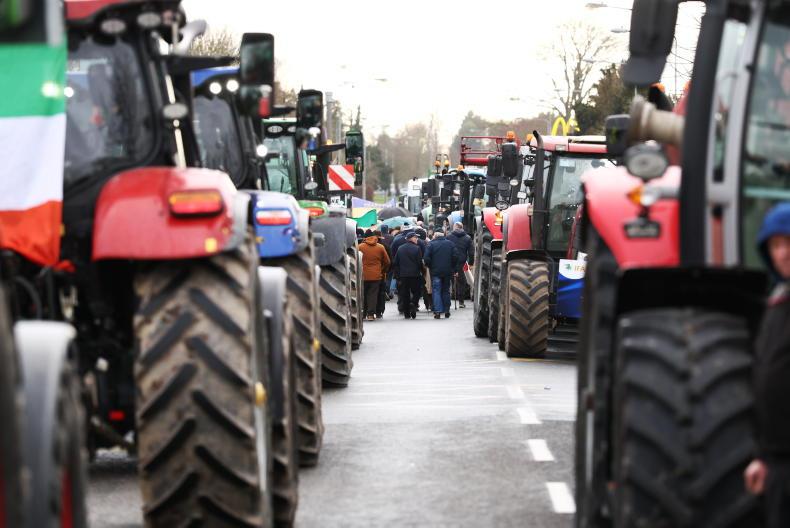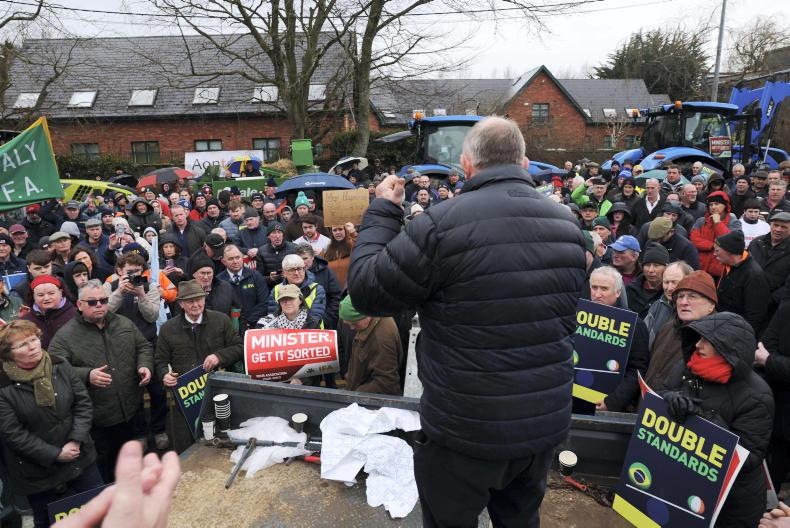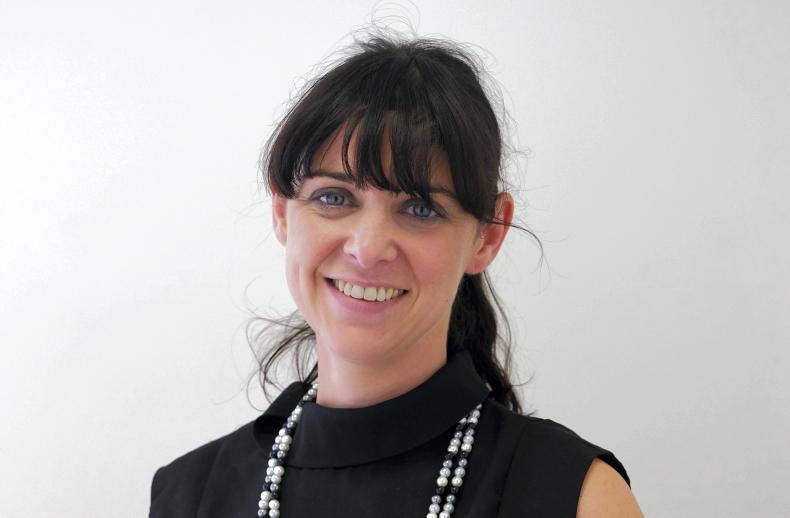Last week, the IFA launched its Christmas campaign – Fairness for Farmers, Honesty for Consumers – which highlighted that the labelling of certain foods in supermarkets that are claimed to be Irish is misleading to consumers.
The campaign centres on misleading labelling and discounted food products in the run-up to Christmas. The use of fake farms, fake creameries and the tricolour on food products is misleading, according to IFA dairy executive Catherine Lascurettes.
Listen to "Beware of fake Irish labeling on food" on Spreaker.
Furthermore, she highlighted that food processors are allowed to put additional voluntary information on the labels of their products, such as the tricolour.By putting this additional information on a food product, the consumer can be led to think that the product is Irish.
An example of this practice is Aldi’s Brannan’s high-protein shredded chicken. As the images above show, it has the Irish flag on the packaging and “Produced in Ireland” underneath it. However, turn to the back of the package and you will see: “Produced in Ireland using EU and non EU chicken”.
Where this non-EU chicken come from you ask? Well, that is not specified to the consumer on the label.
In a statement to the Irish Farmers Journal, Aldi said: “All products we sell comply with all relevant regulations. We work with over 175 Irish suppliers. In 2016, we spent over €700m with Irish suppliers.”
Another example highlighted by the IFA is the use of the National Dairy Council (NDC) logo, which certifies that milk is 100% farmed in Ireland.
Lidl’s own-brand milk, Coolree Creamery, has a range of milk products under the brand name. Some have the NDC logo, but other products under the brand name do not. By having the NDC logo on some products, Lascurettes said that one product with the mark tends to spread the benefit of it in the mind of the consumer – a halo effect.
Fake creameries and fake farms
Irish suppliers who supply to supermarkets may find that their produce goes under the supermarket’s own brand label, such as Coolree Creamery, for example.
“There’s no such place [as Coolree Creamery]. There is no such person or business producing Egan’s Irish mushrooms or salad potatoes [for Aldi].
“There’s also no such thing as Connell Farms producing eggs for Lidl, nor is there such a thing as Healy Farms producing eggs for Aldi,” Lascurettes said.
In turn, this denies the consumer the opportunity to make an informed choice, including the choice of supporting the local economy, she said.
When asked last week if the current labelling laws are being abused, the IFA dairy executive said that labelling legislation makes it clear that the information on the label should not be misleading to the consumer.
“So I would contend that some of what we’re seeing at the moment should be tackled as being confusing and misleading,” Lascurettes said.
Buyer beware
The advice for consumers is that just because there is a tricolour on a food product doesn’t mean that it originates from the Republic of Ireland.
Consumers who want to buy Irish should look for two certified Irish quality marks when buying food – the Bord Bia Quality Mark and the NDC’s Farmed in the Republic of Ireland logo.
That is not to say that food imported from outside of Ireland is of a lesser quality or standard, but if consumers want to but 100% Irish, then they should look out for these logos.
Quality assurance
Quality assured food that is produced and processed in the Republic of Ireland will have the Bord Bia Quality Mark. It means that farmers are audited against a range of standards, including animal welfare and environmental management.
It also requires processors and packing plants to have high standards when it comes to product identification and traceability; inspection and testing; hygiene and good manufacturing practice.
Meanwhile, should milk or cream have the NDC Farmed in the Republic of Ireland logo on its label, it means that it is both farmed and processed in the Republic. The logo can only be shown on cartons/packaging that are licensed to carry the NDC mark, as they source and process their milk in the Republic of Ireland and they meet all of the necessary NDC licensing criteria and audits.
‘Consumers misled by labelling legislation, fake farms and fake creameries’
‘Check twice’ for false flags and fake farms when Christmas shopping – IFA










SHARING OPTIONS